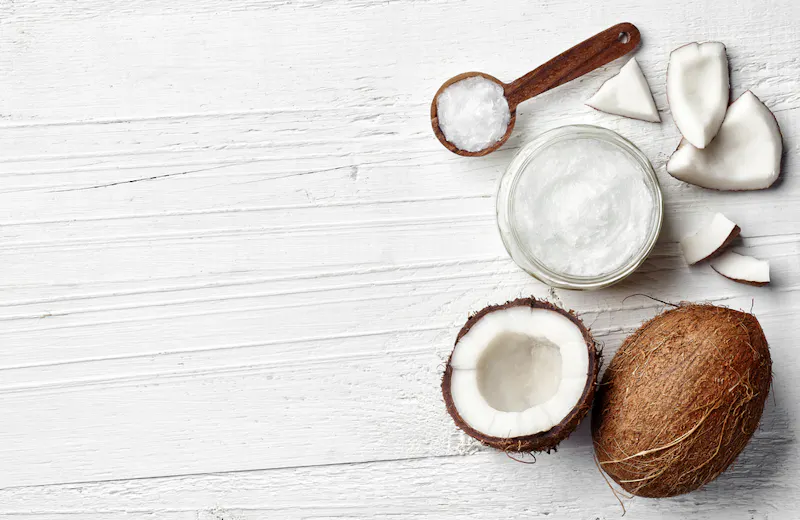What is cholesterol?
What's covered?


Cholesterol is a type of fat found in your cells. It’s essential for making hormones, vitamin D, and bile. Your body makes all the cholesterol it needs so you don’t need to get it from foods. If your cholesterol is too high it can increase your risk of heart disease. There are no symptoms of high cholesterol so checking it regularly is a good idea. A healthy lifestyle can lower your cholesterol levels. Sometimes medications might be used.
Why do you need cholesterol?
Cholesterol is a type of fat that’s produced by your liver. It’s also found in food but your body makes all the cholesterol it needs.
Your body needs cholesterol to make:
- hormones — like oestrogen and testosterone
- vitamin D
- bile acids — helps you digest fat and absorb nutrients
- the structure around your cells
You can check your cholesterol levels with a home cholesterol blood test.
Types of cholesterol
Proteins in your blood, called lipoproteins, transport cholesterol around your body. There are two main types of these proteins.
Low-density lipoprotein (LDL)
LDL cholesterol is essential for your health. But if you have too much LDL cholesterol it can build up on the walls of your arteries. This is called cholesterol plaque and it narrows your arteries and increases your risk of blood clots — putting you at risk of heart disease.
High-density lipoprotein (HDL)
This is often called “good cholesterol”. HDL cholesterol helps to return LDL cholesterol from your arteries to your liver, where it can be removed from your body. This stops plaque from building up on the walls of your arteries, protecting you from heart disease. If your HDL cholesterol is too low it can actually increase your risk of heart disease.
Triglycerides
Lipoproteins also transport another type of fat, triglycerides, around your body. If you take in more calories than your body needs, they’re converted to triglycerides which your body can use as a source of energy. If your triglyceride levels get too high it can increase your risk of heart disease. That’s why your triglyceride levels are usually checked when you test your cholesterol levels.
Causes of high cholesterol
Eating too many foods that are high in saturated fats and trans fats can increase your cholesterol. These are things like:
- butter, ghee, and margarine
- lard
- fatty meat and processed meat
- coconut and palm oils
Smoking, lack of exercise, diabetes, and being overweight can also increase your cholesterol.
Sometimes high cholesterol is caused by a genetic disorder called familial hypercholesterolaemia — which prevents your body from removing LDL cholesterol.
Risks of high cholesterol
If your cholesterol levels are raised to an unhealthy level it’s called hyperlipidemia. There's a lot of evidence from many large clinical trials showing a clear link between high cholesterol and:
- stroke
- heart attack
- angina (chest pain)
- high blood pressure
- chronic kidney disease
Keep in mind that over half of people who have a heart attack have normal LDL cholesterol levels. Heart disease is very complex and cholesterol is only part of the picture.
Checking your cholesterol
Because there aren’t any signs of high cholesterol until something goes wrong, like a heart attack, checking your cholesterol levels regularly is recommended once you’re 20 years old. In fact, over half UK adults have high cholesterol.
You can understand your cholesterol levels at home by using a cholesterol blood test.
Your cholesterol test, sometimes called a lipid profile, will usually look at your:
- LDL cholesterol
- HDL cholesterol
- triglycerides
- total cholesterol — HDL + LDL + triglycerides
- cholesterol ratio — total cholesterol/HDL
How to lower your cholesterol
There are lots of things you can do to lower your cholesterol naturally, including:
- avoid foods high in cholesterol, saturated fats, and trans fats
- avoid fast food and fried foods
- eat high-fibre foods, like fruits, vegetables, and whole grains
- eat lean sources of protein, like chicken, fish, and legumes
- eat oily fish — like salmon and mackerel
- exercise regularly — this can help raise your HDL cholesterol
- lose weight if you’re overweight
- don’t smoke
Medications
In some cases, your doctor might prescribe you medication to try to lower your cholesterol level. The most commonly prescribed medications are statins — these block your liver from producing cholesterol. Other medications can reduce the amount of cholesterol you absorb from foods.
Because medications can have side effects, it’s usually preferable to try to follow a healthy lifestyle first to lower your cholesterol. Your doctor will advise you on what’s the best treatment for you.
Allaire, J., Vors, C., Couture, P., & Lamarche, B. (2017). LDL particle number and size and cardiovascular risk: anything new under the sun?. Current opinion in lipidology, 28(3), 261-266.
Hokanson, J. E. (1998). Hypertriglyceridemia as a cardiovascular risk factor. The American journal of cardiology, 81(4), 7B-12B.
Howard, B. V., Robbins, D. C., Sievers, M. L., Lee, E. T., Rhoades, D., Devereux, R. B., … & Howard, W. J. (2000). LDL cholesterol as a strong predictor of coronary heart disease in diabetic individuals with insulin resistance and low LDL: The Strong Heart Study. Arteriosclerosis, thrombosis, and vascular biology, 20(3), 830-835.
Palazhy, S., Kamath, P., & Vasudevan, D. M. (2014). Estimation of Small, Dense LDL particles using equations derived from routine lipid parameters as surrogate markers. Biochemistry and Analytical Biochemistry, 3(1), 1.